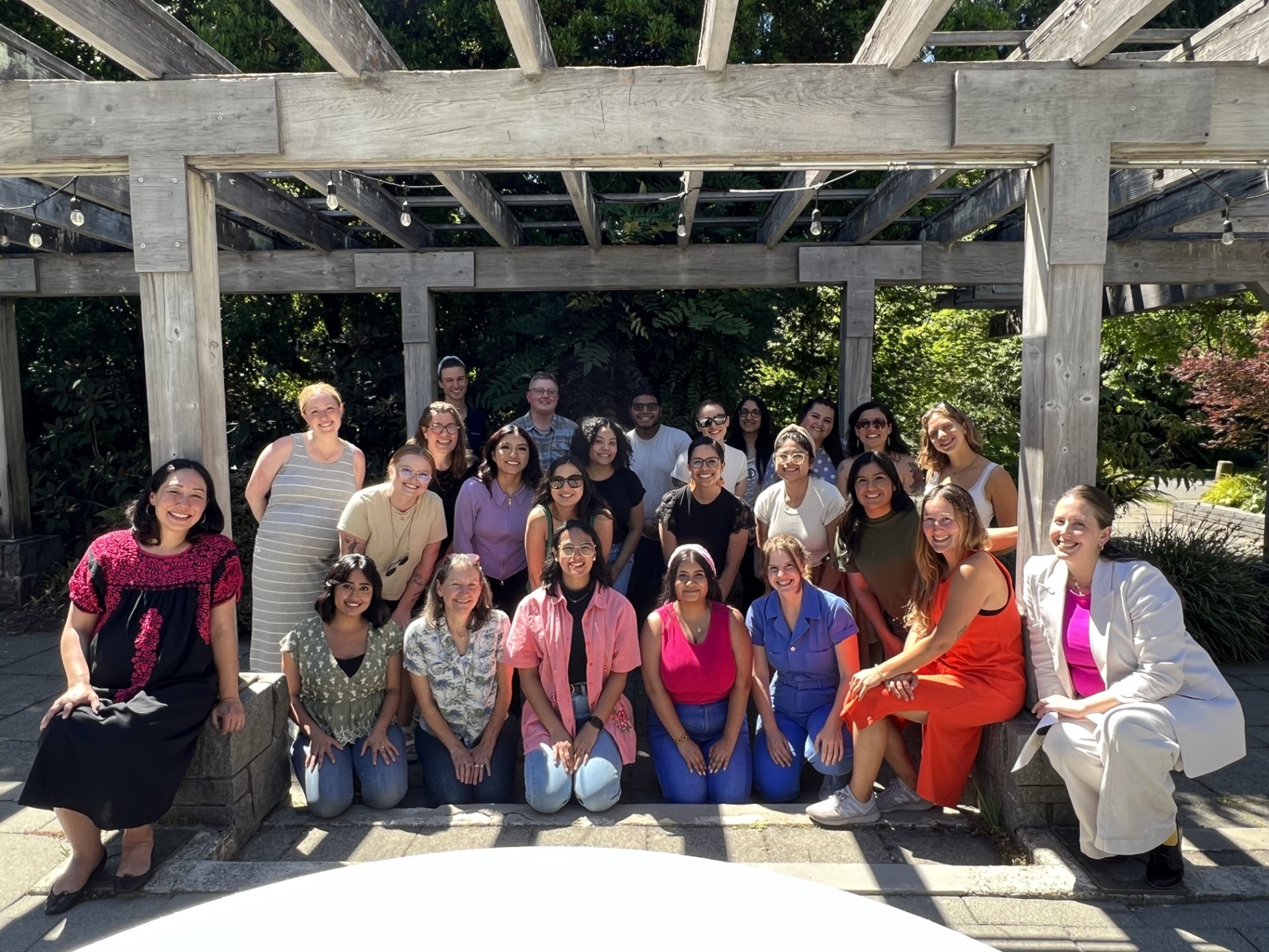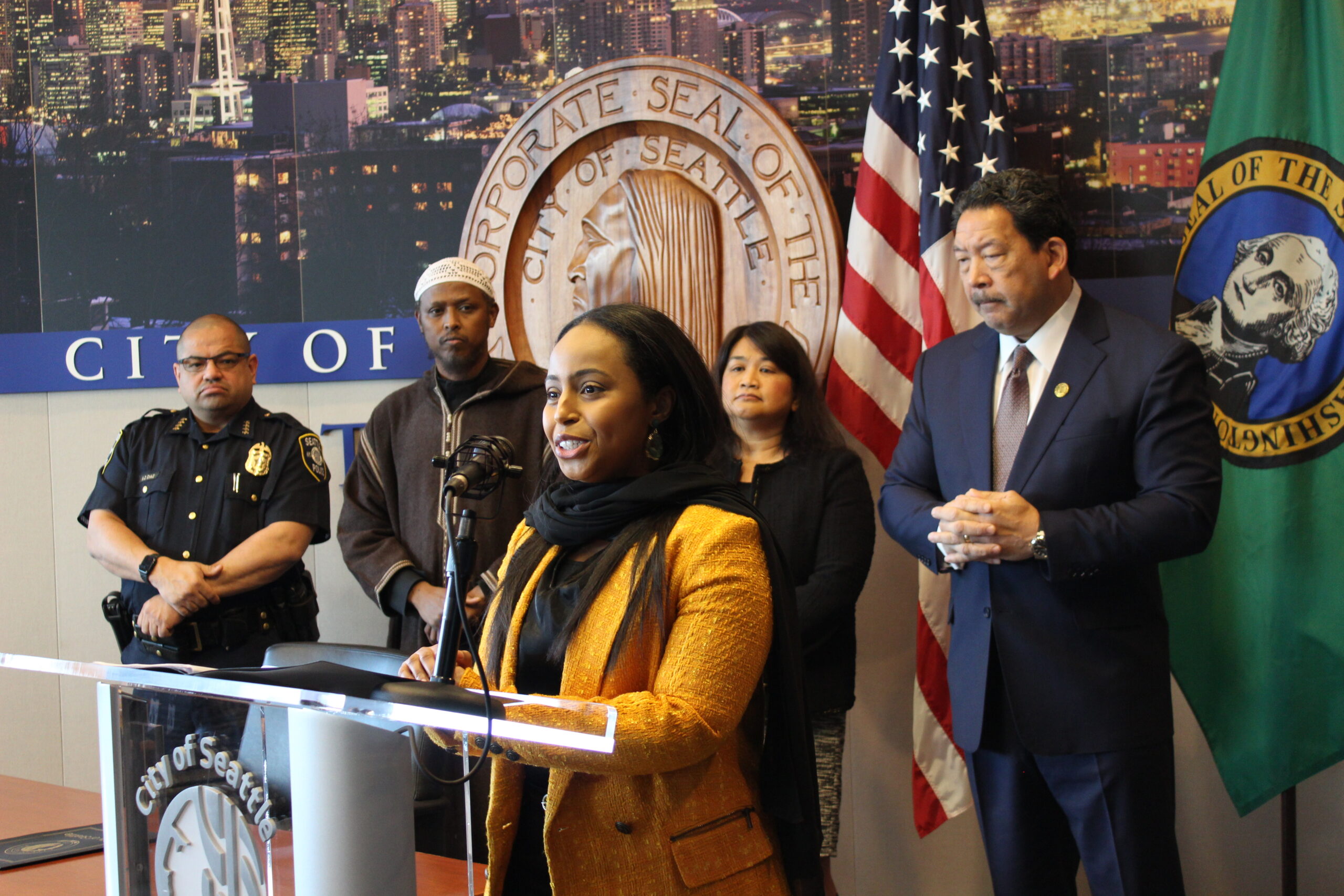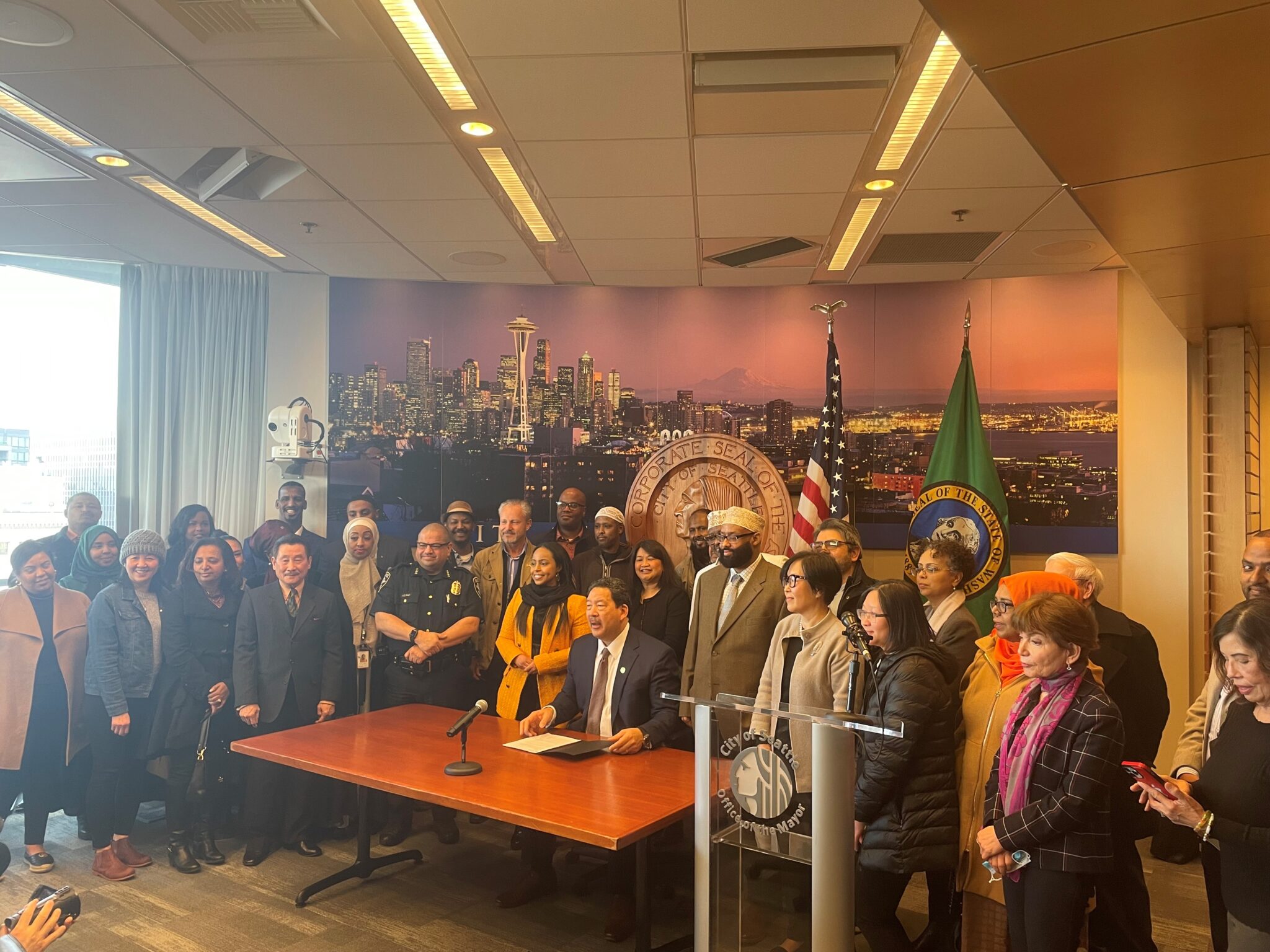
 Community members gathered at City Hall to celebrate the completion of a groundbreaking program intended to keep immigrant young people out of the criminal justice system and build trust between immigrant communities and police officers.
Community members gathered at City Hall to celebrate the completion of a groundbreaking program intended to keep immigrant young people out of the criminal justice system and build trust between immigrant communities and police officers.
The eight-week-long Immigrant Family Institute (IFI) brought together 42 immigrant family members who have experienced the juvenile justice system and 12 Seattle police officers to engage in group discussions and interactive workshops. The Seattle Police Department (SPD) attendees included frontline officers from community police teams and patrol. The families included 15 caregivers and 17 young people who have immigrated to Seattle from Cambodia, Eritrea, Ethiopia, Guatemala, Mexico, and Somalia. A team of interpreters, facilitators, and presenters helped support the curriculum.
Meeting once a week in Seattle’s Central District neighborhood, facilitators Amelia Seraphia Derr, MSW, PhD; Jabali Stewart, PhD; and SPD Officer Martin Welte focused on creating dialogue to break down stereotypes each community had about each other. The workshops helped the immigrant families deepened their knowledge of public safety issues and of how best to navigate City, educational, and legal systems.
“Our intention was to bring disparate groups together to strengthen their ability to be advocates for themselves and each other,” says Seattle University professor Amelia Seraphia Derr who was also part of the curriculum design and facilitation team. She adds, “IFI has been a powerful example of the importance of human relationships in a climate of fear and uncertainty.”

IFI participant SPD Officer Jamin “Jay” Dobson (center) celebrates the program completion with Deputy Mayor Hyeok Kim (left) and SPD Acting Lieutenant Adrian Diaz (right).
IFI builds off the award-winning success of the Refugee Women’s Institute (RWI) launched in September of 2014. OIRA designed this innovative program to build understanding and trust between refugee communities in Seattle and the SPD. The institute, the first of its kind in the nation, aimed to build a grassroots network of refugee women leaders while increasing the cultural competency of the female officers who participated. Evaluations of the program showed the RWI participants reported stronger one-on-one relationships with each other. And short- and long-term data indicated that the participants had meaningful interactions that helped overcome bias for both communities. In 2015, the U.S. Conference of Mayors selected RWI for an innovation award.
“During RWI, we heard mentioned repeatedly a need to build trust and relationships between not only police officers and refugee communities, but also between foreign-born parents and their children,” says OIRA director Cuc Vu who herself was raised in a refugee family in Olympia. “That’s why when our office considered the next step for RWI, we quickly recognized the need to ensure that kids from immigrant families also benefited from bridge-building conversations.”

IFI participant and Somali immigrant Abdullahi Farah (center) proudly graduates from the program.
The work of building IFI started shortly after RWI ended, with the creation of the IFI Advisory Committee. Members of this body includes immigrant youth of color, immigrant/refugee parents, and other key stakeholders from the juvenile justice system, community-based organizations, King County, City of Seattle, service providers, and academia. This committee helped shape key aspects of the program, including the curriculum, recruitment, and outreach. They also helped create the program’s objectives:
- Strengthen the leadership skills of immigrant youth of color and their caregivers to understand and navigate City, educational, and legal systems.
- Bolster trust between immigrant families and the police, so that families are better able to self-advocate and to find resources to help them overcome systemic barriers.
- Help Seattle Police Officers be more culturally responsive in serving immigrant youth of color and their families.
The program organizers envision that the above objectives will help empower immigrant youth that are disproportionately represented in the juvenile justice system, disrupting pathways to that system.
During the graduation event at City Hall, the attendees heard from Deputy Mayor Hyeok Kim, SPD Acting Lieutenant Adrian Diaz, and OIRA Director Cuc Vu. Participants also shared their reasons for participating in IFI, as well as their favorite moments. Program participant Abdullahi Farah talked about how his grades started to increase after the first few weeks in the program.

IFI participant and Ethiopian immigrant Nurayne Aden and son hope the program continues into the future.
Seattle Police Department Race and Social Justice Initiative Coordinator Martin Welte, who also helped facilitate dialogue amongst the SPD attendees, talked about how invaluable the IFI experience has been for him. “It has allowed me to experience something that in 28 years of service I have not: the ability to meet, interact, learn, embrace and most importantly, feel the humanity of people far too often marginalized and made invisible.”
Program participant Khadra Mohamed who is a Somali refugee and whose son also participated in the program stressed the importance of not only continuing the program, but also expanding it, “I think it would also be best to have such a program closer to our neighborhood. Many families will benefit from it.”
In the coming weeks, IFI facilitators will be focused on evaluating the program’s short- and long-term effects on the participants. And organizers are preparing for the next IFI cohort that is expected to start next year. Office of Immigrant and Refugee Affairs staff are considering adjustments to the curriculum, such as including parenting skill workshops, as requested by the participants.
IFI funding came from the City of Seattle general fund and the Seattle Police Foundation.
More information about IFI and the previous RWI at: seattle.gov/iandraffairs/RWI.



